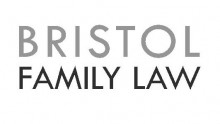Bristol Family Law helps clients obtain an order of protection (also called a restraining order), which provides protection from harm by a household member. The order of protection protects you from abuse by a spouse or former spouse, parent, present or former stepparent or parent in-law, grandparent, grandparent in-law, stepchild, grandchild, co-parent of a child, or a person with whom you have had a continuing personal relationship (e.g. dating). The parties do not have to live in the same home to be considered household members. In fact, in situations of sexual assault and stalking, an order of protection can be issued regardless of the relationship between the alleged victim and the abuser.
An order of protection is designed to stop violent or harassing behavior and protect you and your family from the abuser.
If a household member has caused you physical harm, severe emotional distress, threatened you so that you fear bodily injury, criminally damaged property, has repeatedly driven by a residence or work place, harassed you over the telephone, harassed you, or harmed or threatened harm to children, then contact us to discuss the option of pursuing the entry of a protective order.
If a member of your household is seeking an order of protection against you, contact us to discuss how we might work with you to address the issue.
